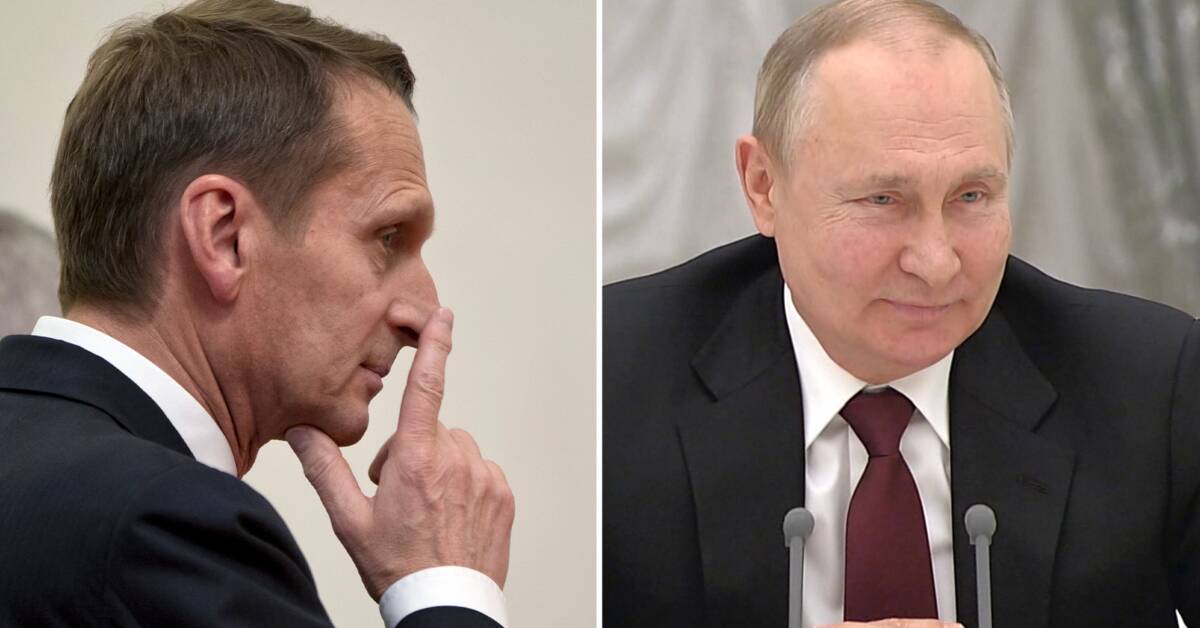Russia's National Security Council is the country's most important collective decision-making group.
Strategic decisions are made here on issues such as foreign policy and security policy.
An extra-ordinary meeting was held on Monday before Vladimir Putin recognized Donetsk (DNR) and Luhansk (LNR) as independent of Russia.
During the meeting, the twelve members got up on the podium to discuss the issue of DNR and LNR.
But it is a sequence from the meeting that has caught the eye of the outside world:
When Sergei Naryshkin, Russia's foreign intelligence chief, shared his views on the situation, he was repeatedly interrupted by Vladimir Putin, who said he would "speak clearly".
Naryshkin finally said that he supports the proposal that "Luhansk and Donetsk should join the Russian Federation".
Putin responded immediately:
- We are not talking about it, it is not even up for discussion.
We are talking about recognizing their independence or not.
The expert: Demonstration of power on Putin's part
Sergei Naryshkin is not just anyone.
He has a long background in the security services and has worked with Putin for over two decades.
Martin Kragh, head of the Russia and Eurasia program at the Foreign Policy Institute, says that there has previously been a discussion that there should be a certain type of equality between the members of Putin's closest circle, but that the meeting gives a completely different impression.
- We have previously only been able to speculate about what the relations in the inner circle look like.
But the meeting gives the impression that Putin alone is the one who makes the decision.
And that other members have only one role, which is to confirm the president's views.
"Steer increasingly authoritarian"
The meeting was an indication that Russia, which has been an authoritarian society for a long time, has now become even more focused on Putin and his role in power, says Kragh.
- He distances himself even more from other political elites, and will now perhaps control and make more and more decisions unilaterally.
All members of the Security Council are loyal to the president, but it was clear that there was some uncertainty in the group as to whether the decision was correct or not, says Martin Kragh.
He also says that all members were forced to verbally commit to the decision to recognize the DNR and LNR, something that at least a number of people in the council were not very comfortable with.
- It was a way to bind the members to the decision, which is a serious violation of international law, he says.

